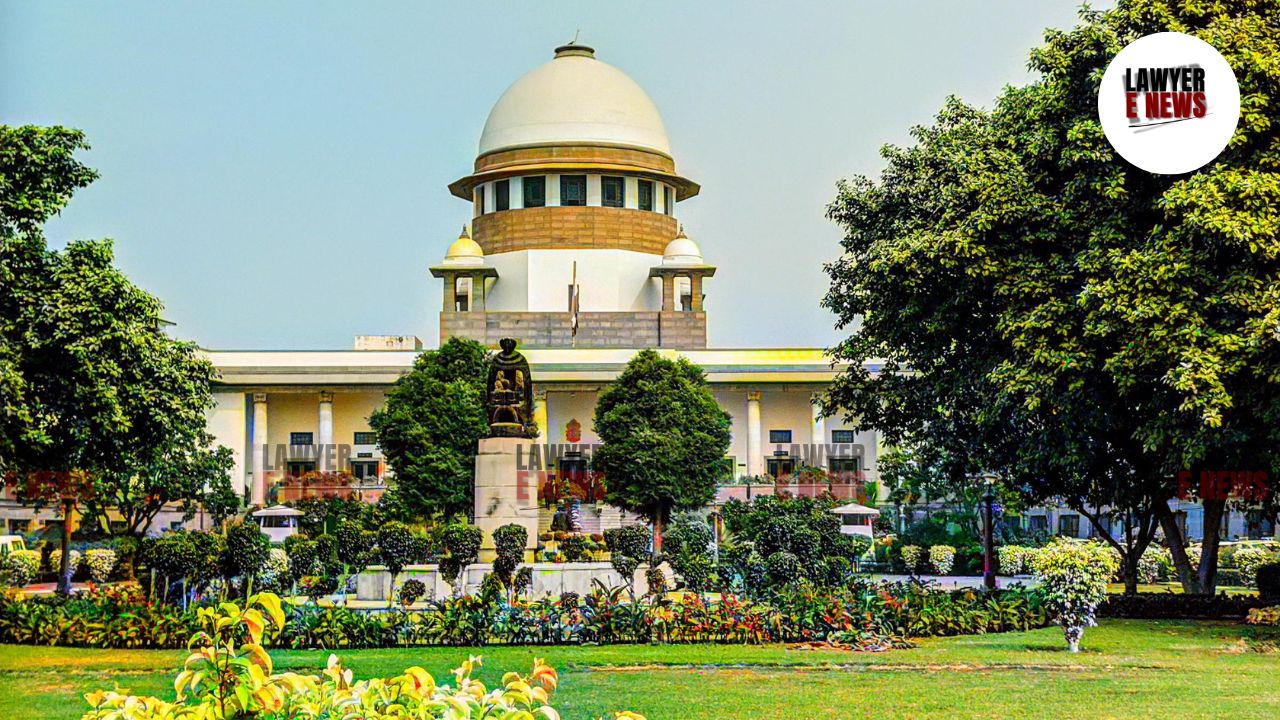-
by Admin
16 February 2026 1:47 PM



Clause Merely Prohibiting Contractor from Claiming Interest Is Not an Express Bar on Arbitrator’s Power — Supreme Court held that Clause 22 of the contract did not amount to an express bar on the arbitrator’s power to award pendente lite interest. The Court observed, “It is not sufficient to lay down a precedent, but it is equally important to follow and apply them as well.” Accordingly, the Court restored the arbitrator’s power to award interest under the Arbitration Act, 1940.
The appellant was awarded a work contract by the respondent State, under which Clause 22 of the agreement stated, “The contractor shall not be entitled to claim any interest upon any payment, any arrears or upon any balance which may be found due to him at any time.” Disputes arose, and the arbitrator awarded Rs.1.78 crore along with 15% pendente lite interest. However, the District Judge, and subsequently the High Court, set aside the interest component on the ground that Clause 22 expressly barred the claim of interest.
Rejecting this interpretation, the Supreme Court explained, “Under the 1940 Act, a stricter approach is followed that requires a clear and express clause against the payment of interest in case of difference, dispute, or misunderstanding, in case of delay of payment, or any other case whatsoever, to constitute a bar on the arbitrator from granting interest.” The Court noted that Clause 22 was a general prohibition against a contractor claiming interest but did not bar the arbitrator from awarding pendente lite interest in arbitration.
Referring to Reliance Cellulose Products Ltd. v. ONGC, Pam Developments v. State of West Bengal, and Union of India v. Ambica Construction, the Court affirmed, “A clause that only provides that interest shall not be granted on amounts payable under the contract would not be sufficient.”
The Court clarified the distinction between the 1940 and 1996 Arbitration Acts. Under the 1940 Act, judicial precedents had evolved a principle of strict construction for ouster clauses, unlike Section 31(7) of the 1996 Act which codifies party autonomy regarding interest. The Court stressed, “A bar on award of interest for delayed payment would not be readily inferred as an express bar to the award of pendente lite interest by the arbitrator.”
In the present case, the Court held that the arbitrator was empowered to award pendente lite interest as Clause 22 lacked a direct prohibition against such an award. The Bench also observed that the High Court incorrectly applied principles applicable under the 1996 Act while interpreting a contract governed by the 1940 Act.
Considering the long pendency of the litigation and substantial payments already made, the Court modified the rate of interest from 15% to 9% pendente lite and directed the respondent State to make payment within 60 days. The Court remarked, “Since these proceedings arise under the 1940 Act, the scope and jurisdiction of the Court to modify or vary the award is larger than that of the court exercising jurisdiction under Section 34 of the 1996 Act.”
Date of Decision: April 2, 2025
